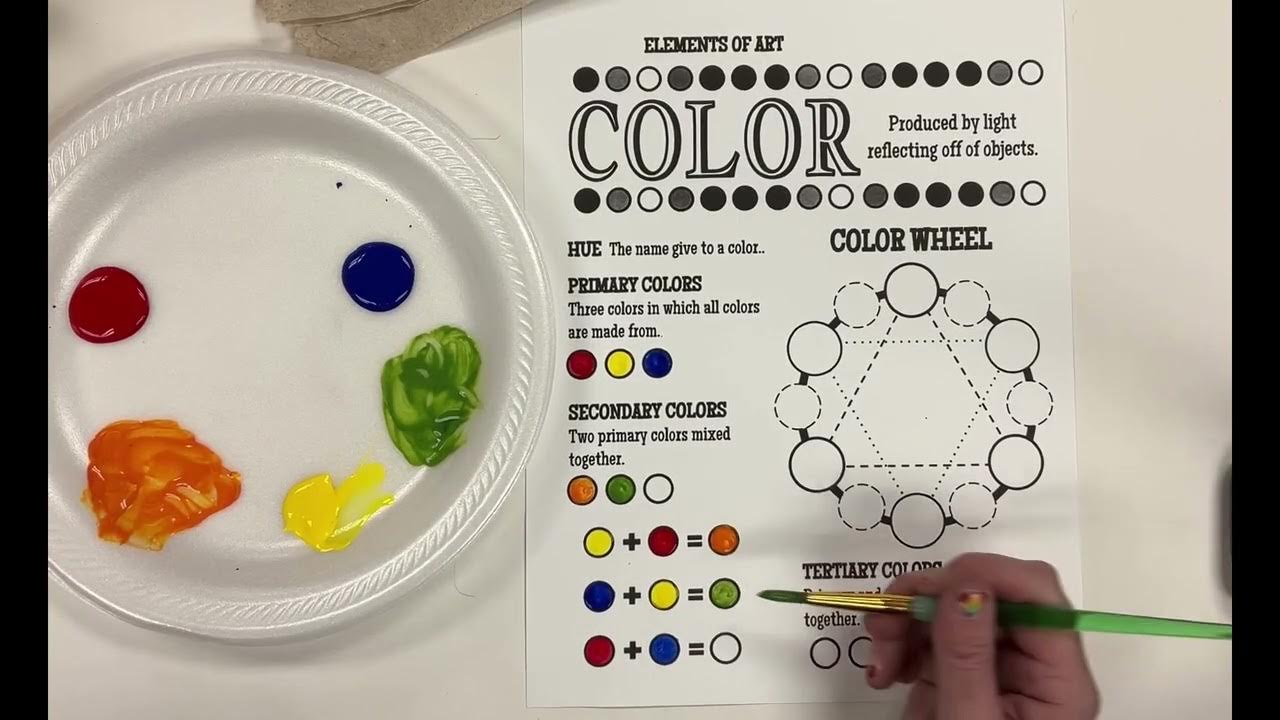Color Theory for Beginners | FREE COURSE
Summary
TLDRIn this engaging course on color theory, graphic designer Laura Keung guides you through the fundamentals of the color wheel, color harmonies, and the psychology of colors in branding. You'll learn to create effective color palettes using complementary, analogous, monochromatic, and triadic schemes, while also understanding the differences between RGB and CMYK color modes. By exploring real-life examples and practical exercises, this course equips both novice and experienced designers with the tools needed to evoke emotions and communicate ideas through color. Check out Envato Elements for creative templates to enhance your design projects.
Takeaways
- 🎨 Colors are powerful visual tools that evoke emotions and communicate ideas in brand design.
- 🔵 The color wheel, invented by Sir Isaac Newton, helps us understand how colors can work together to create pleasing harmonies.
- 🌈 There are three primary colors (red, yellow, blue) that mix to form secondary colors (green, purple, orange) and tertiary colors.
- 🟢 Hue, saturation, and value are key attributes of colors that affect their visual impact.
- 🌡️ Colors can be categorized into warm (e.g., red, yellow) and cool (e.g., blue, green) temperatures, each evoking different feelings.
- ⚖️ Color harmony types include complementary, analogous, monochromatic, triadic, and tetradic schemes, each providing distinct aesthetic effects.
- 🖥️ RGB (red, green, blue) is used for digital designs, while CMYK (cyan, magenta, yellow, black) is essential for print media.
- 🔍 Understanding color psychology helps designers choose colors that align with brand messaging and target audience emotions.
- 💡 Creating a color palette involves balancing colors through various shades, tints, and tones to achieve harmony and contrast.
- 📚 Envato Elements is a valuable resource for designers looking for high-quality templates and educational materials.
Q & A
What is the primary purpose of the color wheel in design?
-The color wheel helps designers understand how colors work together to create harmonies that are visually appealing.
What are the three primary colors on the color wheel?
-The three primary colors are red, yellow, and blue.
How do secondary colors arise from primary colors?
-Secondary colors are created by mixing two primary colors together, resulting in green, purple, and orange.
What is the difference between hue, saturation, and value?
-Hue refers to the color itself, saturation measures the vibrancy of the color, and value indicates how light or dark the color is.
What are complementary colors, and can you provide an example?
-Complementary colors are pairs of colors that are opposite each other on the color wheel, such as red and green.
What is color psychology and why is it important in design?
-Color psychology explores how colors can evoke specific emotions and behaviors, which is crucial for effectively communicating a brand's message.
What is the difference between RGB and CMYK color modes?
-RGB is used for digital screens and is additive, while CMYK is for print and is subtractive.
How can designers create their own color palettes?
-Designers can create color palettes by choosing a main color and using color harmonies like complementary, analogous, or monochromatic schemes.
What does a triadic color scheme involve?
-A triadic color scheme consists of three colors that are evenly spaced on the color wheel, forming a triangle.
What is the significance of using tints, tones, and shades in color palettes?
-Using tints, tones, and shades allows for greater depth and variety in a color palette, enhancing visual interest and balance.
Outlines

This section is available to paid users only. Please upgrade to access this part.
Upgrade NowMindmap

This section is available to paid users only. Please upgrade to access this part.
Upgrade NowKeywords

This section is available to paid users only. Please upgrade to access this part.
Upgrade NowHighlights

This section is available to paid users only. Please upgrade to access this part.
Upgrade NowTranscripts

This section is available to paid users only. Please upgrade to access this part.
Upgrade NowBrowse More Related Video

Teori Warna | #Part7 | Kelas Pengantar Desain Grafis

COLOR THEORY BASICS: Use the Color Wheel & Color Harmonies to Choose Colors that Work Well Together

Basic Color Theory & Color Harmonies

How to use Color Theory | Graphic Design Basic

07 | How to use colors in Graphic Design? | Color Theory 101 for Beginner Graphic Designers

How to Color Wheel with Primary, Secondary and Tertiary colors
5.0 / 5 (0 votes)